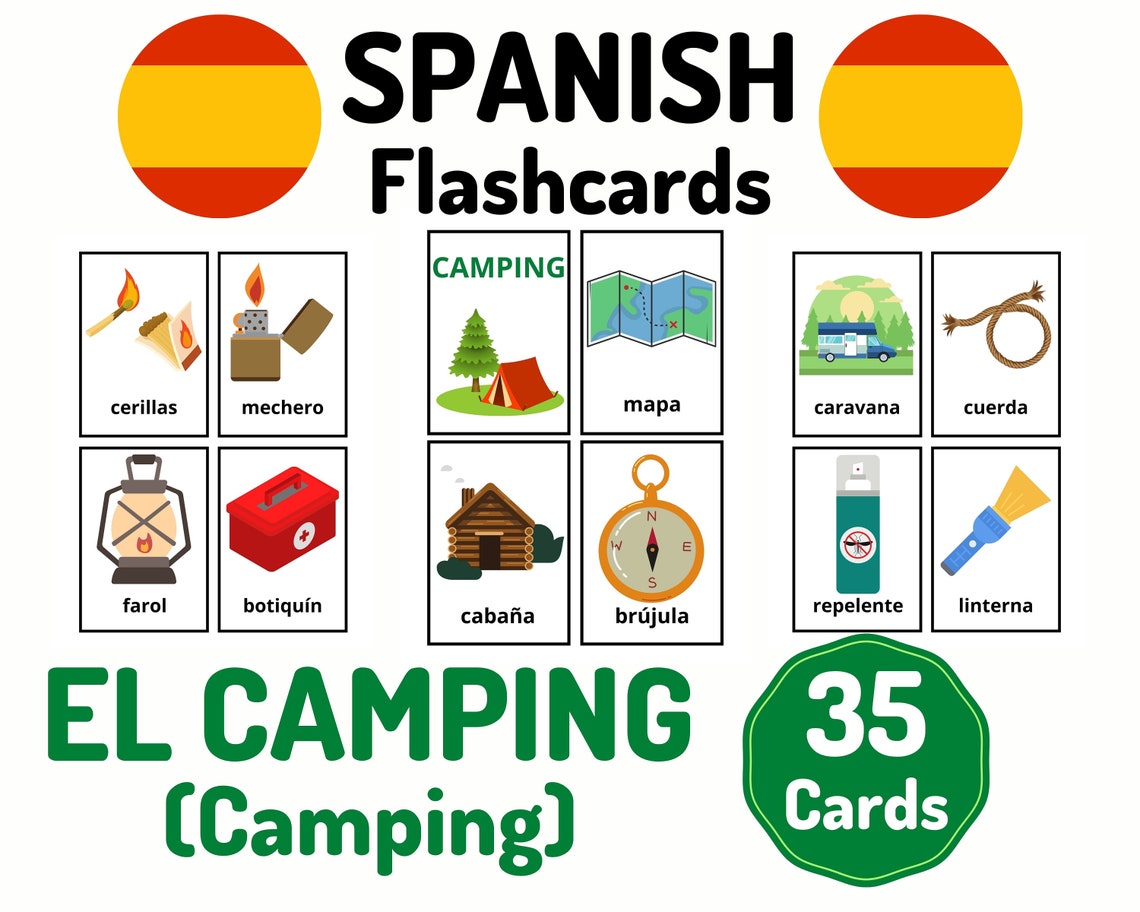Embark on a linguistic adventure with “camp in Spanish language,” where we unravel its diverse meanings, grammatical intricacies, and profound cultural impact. From everyday conversations to artistic expressions, “camp” weaves its way through the tapestry of Spanish-speaking societies, offering a glimpse into their unique perspectives and identities.
Our exploration begins with a thorough examination of the vocabulary surrounding “camp,” tracing its etymological roots and uncovering its various interpretations. We delve into its usage, exploring the grammatical constructions that shape its meaning and the contexts in which it is employed.
Along the way, we encounter regional variations, highlighting how the word’s significance and application evolve across different Spanish-speaking regions.
Vocabulary
The Spanish translation for “camp” is “campamento”.
In Spanish, “camp” can have several meanings. It can refer to a place where people live temporarily, such as a military camp or a refugee camp. It can also refer to a group of people who share a common interest or goal, such as a political camp or a summer camp.
Finally, it can also be used to describe something that is exaggerated or over-the-top, such as a “campy” movie or TV show.
Etymology
The Spanish word “campamento” comes from the Latin word “campus”, which means “field”. This is because military camps were often set up in open fields.
Usage

In everyday Spanish conversation, “camp” is primarily used to refer to a rural or wilderness area, often associated with outdoor activities such as camping, hiking, and fishing. It can also be used to describe a temporary settlement or encampment, such as a military camp or a refugee camp.
Grammatically, “camp” is typically used as a noun, but it can also be used as a verb to describe the act of camping or setting up a camp.
Noun Usage
As a noun, “camp” can be used in various contexts:
- To refer to a specific location or area, such as “el campamento base” (the base camp) or “el campamento de verano” (the summer camp).
- To describe the physical structures or facilities associated with a camp, such as “las tiendas de campaña” (the tents) or “el comedor” (the dining hall).
- To refer to the people who live or stay in a camp, such as “los campistas” (the campers) or “los refugiados” (the refugees).
Verb Usage
As a verb, “campar” means “to camp” or “to set up a camp.” It is typically used in the present tense, such as “estamos acampando en el bosque” (we are camping in the forest), or in the past tense, such as “acamparon cerca del lago” (they camped near the lake).
Cultural Significance

In Spanish-speaking countries, “camp” holds a significant cultural value, transcending its initial definition. It’s a way of expressing one’s cultural identity and pride through various mediums.
Camp is often employed in Spanish-language media to evoke a sense of nostalgia, humor, and cultural connection. It’s a means to celebrate the quirks and eccentricities that make Hispanic culture unique.
Examples in Spanish-Language Media, Camp in spanish language
- The iconic telenovela “Yo Soy Betty, la Fea” (Ugly Betty) embraced camp by presenting exaggerated characters and humorous situations, which resonated with audiences worldwide.
- The Spanish film “Pedro Infante Vive” (Pedro Infante Lives) employed camp elements to create a surreal and entertaining tribute to the legendary Mexican singer.
- In the music industry, artists like Gloria Trevi and Alaska y Dinarama have incorporated camp into their performances and aesthetics, showcasing the flamboyant and expressive side of Latin culture.
Regional Variations
The term “camp” has various regional variations in Spanish, with its meaning and usage differing across different Spanish-speaking regions.
These variations reflect the diverse cultural and linguistic influences that have shaped the Spanish language in different parts of the world.
Spain
In Spain, “camp” is primarily used to refer to a style of art, fashion, or behavior that is considered exaggerated, theatrical, or kitsch. It often carries a sense of irony or humor.
For example, the phrase “muy camp” (very camp) might be used to describe an outfit that is intentionally over-the-top or a performance that is deliberately melodramatic.
Mexico
In Mexico, “camp” has a broader meaning and can refer to a wide range of things, including a rural or rustic setting, a campsite, or a group of people who share a common interest or activity.
For example, the phrase “ir de camp” (to go camping) refers to the act of spending time outdoors in a tent or camper, while “campamento” (campsite) refers to a designated area for camping.
Argentina
In Argentina, “camp” is often used to refer to the vast countryside or pampas, which are known for their open spaces and cattle ranching.
For example, the phrase “el campo” (the countryside) evokes images of rolling hills, grazing cattle, and gauchos (traditional cowboys).
Cognates

The term “camp” has cognates in several Romance languages, including:* French: “camp”
Italian
“campo”
Portuguese
“campo”
Spanish
“campo”The word “camp” originally referred to a military encampment or a temporary settlement in the countryside. However, over time, the meaning and usage of “camp” has evolved in different Romance languages.
French
In French, “camp” primarily refers to a military encampment or a temporary shelter. It can also be used to refer to a summer camp or a refugee camp.
Italian
In Italian, “campo” has a broader meaning, encompassing not only military encampments but also fields, open spaces, and agricultural land. It can also be used figuratively to refer to a field of activity or a sphere of interest.
Portuguese
In Portuguese, “campo” has a similar meaning to Italian, referring to both military encampments and open spaces. It can also be used to refer to a sports field or a playing field.
Spanish
In Spanish, “campo” primarily refers to open spaces, fields, and agricultural land. It can also be used to refer to a military encampment or a temporary settlement, but this usage is less common than in other Romance languages.
Epilogue: Camp In Spanish Language
In the realm of cultural significance, “camp” emerges as a powerful tool for expressing identity and shaping collective experiences. We examine its role in Spanish-language media, from literature to film, and explore how it reflects and influences cultural norms and values.
Through its ability to bridge linguistic and cultural boundaries, “camp” fosters a sense of community and shared understanding among Spanish speakers worldwide.
Commonly Asked Questions
What are the different meanings of “camp” in Spanish?
In Spanish, “camp” can refer to a campsite, a military camp, or a rural area. It can also be used figuratively to describe something that is exaggerated or artificial.
How is “camp” used in everyday Spanish conversation?
In everyday Spanish conversation, “camp” is often used to refer to a campsite or a military camp. It can also be used to describe a rural area or a group of people who are camping.
What is the cultural significance of “camp” in Spanish-speaking countries?
In Spanish-speaking countries, “camp” is often associated with the countryside and traditional values. It can also be used to express a sense of nostalgia or longing for a simpler time.